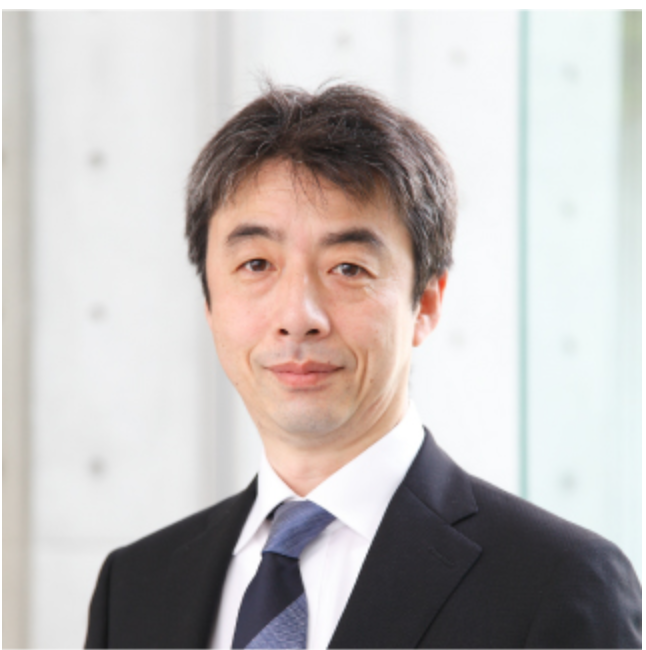Education
- 1987: B. Pharm.; Faculty of Pharmaceutical Sciences, Tohoku University Sendai, Japan
- 1989: M. Pharm.; Graduate School of Pharmaceutical Sciences, Tohoku University, Sendai, Japan
- 1998: Ph.D.; Graduate School of Pharmaceutical Sciences, Tohoku University, Sendai, Japan
Professional Experience
- 1998-1999: Postdoctoral Fellow; School of Medicine, Tokai University (Isehara, Japan) Assistant Professor; Institute for Immunological Sciences, Hokkaido University, Sapporo, Japan
- 1999-2000: Assistant Professor, Institute for Immunological Science, Hokkaido University (Sapporo, Japan)
- 2000-2004: Visiting Fellow, National Institute of Allergy and Infectious diseases, National Institutes of Health (Bethesda, MD)
- 2004-2010: Assistant Professor, Department of Pharmaceutical Sciences, Northeastern University (Boston, MA)
- 2010-2015: Principal Research Scientist, New England Inflammation and Tissue Protection Institute, Northeastern University (Boston, MA)
- 2015-2016: Temporary Lecturer, Center for Drug Discovery, Northeastern University (Boston, MA)
- 2016-present: Professor, Department of Immunology, Foundation for Biomedical Research and Innovation at Kobe (Kobe, Japan)
- 2017-2021: Adjunct Associate Professor, Graduate School of Medicine, Kyoto University, Kyoto, Japan
- 2021~: Visiting Professor, Center for Cancer Immunotherapy and Immunobiology Graduate School of Medicine, Kyoto University (Kyoto, Japan)
Research Focus
Targeting immunoregulatory mechanisms for therapeutic intervention
The immune system in our body has a variety of activating and inhibitory mechanisms, which fine-tune the type and intensity of immune response. However, the regulation is often imperfect, and insufficient immune response may allow the outgrowth of pathogens such as bacteria, viruses, and cancer cells. Conversely, overactive immune response may cause numerous inflammatory diseases, including allergic and autoimmune diseases.
PD-1 is one of the crucial immunoregulatory mechanisms that suppress unnecessary inflammatory response as demonstrated by the spontaneous development of inflammatory diseases in PD-1-deficient mice. Normally, most resting T cells do not express PD-1, but activated T cells increase PD-1 expression, suggesting that PD-1 functions as a physiological feedback mechanism putting the brakes on ongoing inflammatory responses. Thus, PD-1 has been a promising drug target in intervening immune response. In fact, cancerous tissues utilize such endogenous immunoregulatory mechanisms to evade anti-tumor immune responses, and pharmacological blockers of the immunosuppressive mechanisms have seen a remarkable success in clinical cancer treatment.
PD-1 agonist antibodies
For diseases by overactive immunity, the addition of new anti-inflammatory drugs to the inventory has certainly advanced the treatment of diseases; however, there are still a number of inflammatory diseases, which await effective treatments. Contrary to the treatment of cancer, active utilization of the immunosuppressive mechanisms will be promising for the treatment of inflammatory diseases. We focused on the development of antibodies that induce the immunosuppressive activity of PD-1. Based on the mechanistic requirement to trigger PD-1 activity, we established a screening system for biologically functional anti-PD-1 antibodies and identified agonist antibodies that can trigger the immunosuppressive activity of PD-1. Interestingly, all agonist antibodies recognized PD-1 molecule at the membrane-proximal region, which is distinct from the recognition of PD-L1-binding domain by blocking antibodies.
In vivo administration of anti-PD-1 agonist antibody effectively suppressed inflammatory diseases in mice. Immunosuppressive efficacy of PD-1 agonist antibody ranges from CD4+ or CD8+ T cell-dominant inflammation to antibody production by B cells. The versatility of PD-1 agonist antibody is consistent with the significance of PD-1 in cellular and humoral immunity. We consider PD-1 agonist antibody as a strong drug candidate and plan to further analyze its influence on immune responses not only for potential drug development but also to expand the understandings on PD-1-dependent immunoregulation.
Early changes in T cell activation as a diagnostic marker
T cell response to specific antigens has a strong influence on the disease pathogenesis. For example, the status of anti-viral, anti-tumor and autoimmune T cell immunity should be directly associated with the susceptibility and resistance to diseases. To monitor the disease activity and the response to medical treatment, a reasonable projection of T cell status will be valuable for diagnosis. We sought to develop a new method that can detect antigen-specific T cells in the peripheral blood. Human PBMC have been extensively analyzed for the expression of mRNA and proteins, but not as much for immune functions. We stimulate human PBMC with antigens and evaluate the diagnostic value of early changes in T cell activation.
Selected Publications
Suzuki, K., Tajima, M., Tokumaru, Y., Oshiro, Y., Nagata, S., Kamada, H., Kihara, M., Nakano, K., Honjo, T., Ohta, A. Anti-PD-1 antibodies recognizing the membrane-proximal region are PD-1 agonists that can down-regulate inflammatory diseases. Sci Immunol 8:eadd4947 (2023). DOI: 10.1126/sciimmunol.add4947
Wang, G., Tajima, M., Honjo, T., Ohta, A. STAT5 interferes with PD-1 transcriptional activation and affects CD8+ T-cell sensitivity to PD-1-dependent immunoregulation. Int Immunol 33: 563-572 (2021). DOI: 10.1093/intimm/dxab059
Ashoori, M.D., Suzuki, K., Tokumaru, Y., Ikuta, N., Tajima, M., Honjo, T., Ohta, A. Inactivation of the PD-1-dependent immunoregulation in mice exacerbates contact hypersensitivity resembling immune-related adverse events. Front Immunol 11: 618711 (2021). DOI: 10.3389/fimmu.2020.618711
Kjaergaard, J., Hatfield, S., Jones, G., Ohta, A., Sitkovsky, M. A2A Adenosine Receptor Gene Deletion or Synthetic A2A Antagonist Liberate Tumor-Reactive CD8+ T Cells from Tumor-Induced Immunosuppression. J Immunol 201: 782-791 (2018). DOI: 10.4049/jimmunol.1700850
Ohta, A. A Metabolic Immune Checkpoint: Adenosine in Tumor Microenvironment. Front Immunol 7: 109 (2016). DOI: 10.3389/fimmu.2016.00109
Hatfield, S.M., Kjaergaard, J., Lukashev, D., Schreiber, T.H., Belikoff, B., Abbott, R., Sethumadhavan, S., Philbrook, P., Ko, K., Cannici, R., Thayer, M., Rodig, S., Kutok, J.L., Jackson, E.K., Karger, B., Podack, E.R., Ohta, A., Sitkovsky, M. Immunological mechanisms of the anti-tumor effects of supplemental oxygenation. Sci Transl Med 7: 277ra30 (2015). DOI: 10.1126/scitranslmed.aaa1260
Ohta, A., Sitkovsky, M. Extracellular adenosine-mediated modulation of regulatory T cells. Front. Immunol. 5: 304 (2014).
Sitkovsky, M.V., Lukashev, D., Apasov, S., Kojima, H., Koshiba, M., Caldwell, C., Ohta, A., and Thiel, M. Physiological control of immune response and inflammatory tissue damage by hypoxia-inducible factors and adenosine A2A receptors. Annu Rev Immunol 22:657-682 (2004). DOI: 10.1146/annurev.immunol.22.012703.104731
Ohta, A., Sitkovsky, M. Role of G-protein-coupled adenosine receptors in downregulation of inflammation and protection from tissue damage. Nature 414:916-920 (2001). DOI: https://doi.org/10.1038/414916a

